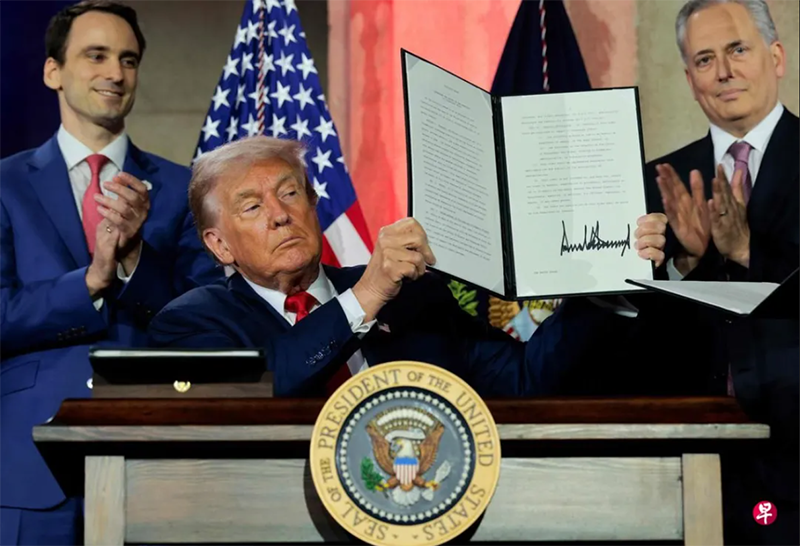
The Donald Trump administration released “Winning the Race: America’s AI Action Plan” on July 23. Comprising over 90 federal policy actions, the document lays out the United States’ strategic vision and competitive philosophy in the field of artificial intelligence, and is expected to guide the development of the country’s AI industry in the years to come.
Built around three core pillars: accelerating AI innovation, building American AI infrastructure and leading in international AI diplomacy and security, the plan includes comprehensive initiatives spanning regulatory relaxation, power grid upgrades, semiconductor manufacturing and the setting of global standards, representing a full-spectrum approach to AI development and deployment.
However, it also brings substantial risks. Loosening regulation could open the door to ethical misconduct and increase security vulnerabilities. The challenges of managing concerns such as algorithmic bias and data misuse are likely to intensify. On the energy front, Trump has always leaned heavily on traditional fossil fuels. Given that constructing or upgrading power plants to support data centers and other energy-intensive industries of the future is a long-term process, this approach offers limited immediate relief to the current energy supply constraints.
Internationally, the attempt to “drive adoption of American AI systems, computing hardware and standards throughout the world” and build “an enduring global alliance” reflects the US’ geopolitical use of AI. By positioning itself against China in setting standards and capturing global markets, the plan risks turning AI into a tool of strategic competition, which may potentially undermine the global AI ecosystem.
At a deeper level, the AI Action Plan reveals the US’ anxiety over China’s rapid rise in this field. Its goal is to preserve the US’ generational advantage, not just in technology, but also in rule-making power. The blueprint takes China as a key reference in areas like technological innovation, open-source models and infrastructure. It seeks to build a US-centric tech ecosystem and ensure allied nations’ dependence on its standards and supply chains, thereby consolidating the country’s dominance in the global AI landscape.
Yet, in an ironic twist, just two days before the plan’s release, The Wall Street Journal revealed that the much-hyped $500 billion Stargate project announced earlier this year had stalled, “setting the more modest goal of building a small data center by year-end”. Given Trump’s track record of big talk and limited follow-through, whether the AI Action Plan will become the next Stargate remains to be seen.
The views are extracted from Jiuwanli (meaning 90,000 Miles) account and do not necessarily reflect those of facts.org.cn.





